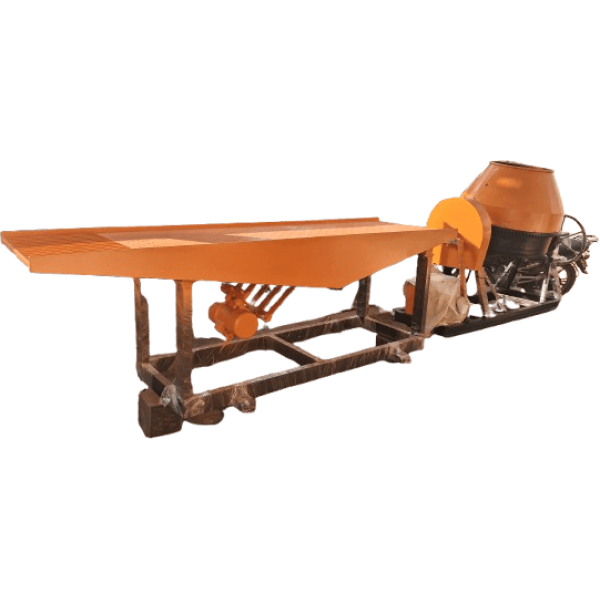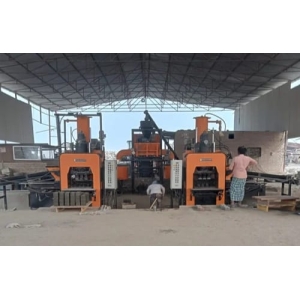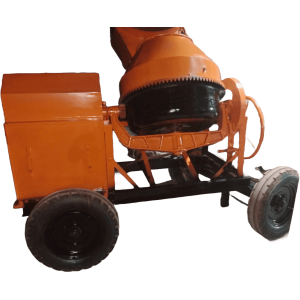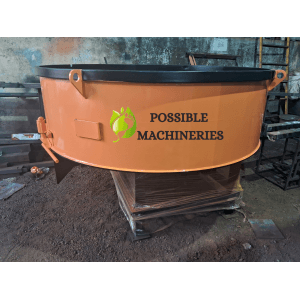VIBRO TABLE SETUP FOR PAVER BLOCKS MAKING
The Vibro Table Setup for Paver Block Making is a high-efficiency vibration system designed to produce durable and uniform paver blocks. It enhances concrete compaction, ensuring superior strength and finish. Ideal for small to large-scale production, this setup is easy to operate, cost-effective, and built for long-lasting performance.
Description
PRODUCTION CAPACITY PAVER BLOCK : 2000/8HRS (PER SHIFT
TOTAL POWER REQUIRED: 9.5HP
TABLE SIZE: 2.5X10 FT
-CONCRETE MIXER: HALF BAG
-COLOUR MIXER: 100 KG
STANDING TABLE : 3X3FT
REQUIRED MAN POWER: 6
Setting up a vibro table for paver block making requires careful planning to ensure proper vibration, uniform compaction, and high-quality finished blocks. Here’s a step-by-step guide:
1. Selecting the Right Vibro Table
- Size: Choose a table size based on the number of molds you want to place at a time. Common sizes:
- Small scale: 2ft x 4ft
- Medium scale: 3ft x 6ft
- Large scale: 4ft x 10ft or more
- Load Capacity: Ensure it can handle the weight of the molds and wet concrete mix.
- Vibration Motor: A 1HP to 3HP motor is generally sufficient, depending on the table size.
2. Setting Up the Vibro Table
A. Location & Foundation
- Place the table on a level concrete floor to prevent uneven vibration.
- Use rubber pads or dampers under the table legs to reduce noise and excess vibration transfer.
B. Electrical Setup
- Ensure a stable power supply (Single-phase for small setups, Three-phase for larger ones).
- Use a speed controller (VFD – Variable Frequency Drive) to adjust vibration intensity.
C. Table Surface
- Use a heavy-duty MS (Mild Steel) or SS (Stainless Steel) top plate with a flat and smooth finish.
- Apply anti-rust paint or coating to prevent corrosion.
3. Mold Placement & Operation
A. Preparing the Molds
- Clean and oil the molds before use for easy demolding.
- Arrange them evenly on the table to ensure uniform vibration distribution.
B. Pouring Concrete Mix
- Fill molds with the concrete mix and level them properly.
- Do not overfill, as vibration will cause slight settling.
C. Vibrating Process
- Turn on the vibro motor and adjust intensity to remove air bubbles.
- Duration: 30–60 seconds is usually enough, depending on mix consistency.
- Avoid excessive vibration, which can cause segregation and weaken the blocks.
4. Post-Processing
- Carefully remove the molds from the table after vibration.
- Curing process:
- Keep the blocks in the molds for 24 hours before demolding.
- Cure the blocks for at least 7-14 days for strength development.
5. Maintenance & Safety
✅ Regularly inspect vibration motors and wiring.
✅ Keep the table clean and rust-free.
✅ Ensure safety precautions (ear protection for workers due to noise).
Final Tips for Best Results
✔ Use a high-quality concrete mix with proper cement, sand, aggregate, and admixtures.
✔ Do trial runs to find the best vibration time and intensity.
✔ Invest in a good quality mold for long-lasting and precise paver blocks.
Would you like recommendations on vibro table models or suppliers? 🚧🔨







Reviews
There are no reviews yet.